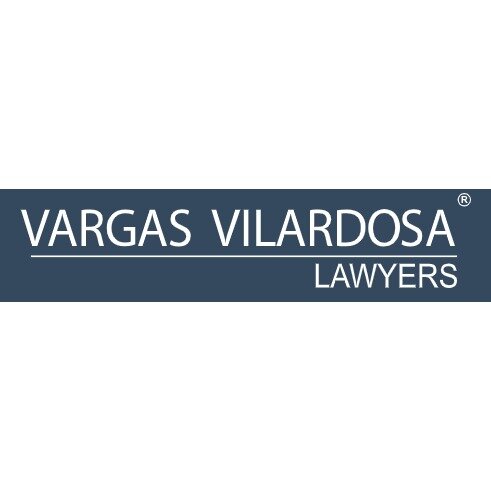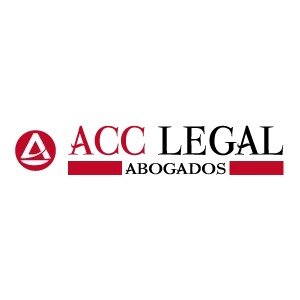Best Structured Finance Lawyers in Spain
Share your needs with us, get contacted by law firms.
Free. Takes 2 min.
Or refine your search by selecting a city:
List of the best lawyers in Spain
About Structured Finance Law in Spain
Structured Finance in Spain encompasses a range of complex financial transactions designed to facilitate large capital flows, manage risks, and tailor financing solutions beyond traditional lending. Common mechanisms include securitization, syndicated loans, collateralized debt obligations, and asset-backed securities. Spanish law has evolved significantly to accommodate international best practices while addressing local market needs. This area of law ensures these sophisticated financial structures comply with legal and regulatory requirements, safeguarding both investors and originators.
Why You May Need a Lawyer
Structured Finance transactions often involve intricate documentation, regulatory considerations, and multiple stakeholders. You may need a legal expert in Structured Finance in Spain in the following situations:
- Structuring or participating in securitization or asset-backed securities deals
- Negotiating or entering into syndicated or structured financing arrangements
- Ensuring legal and regulatory compliance for cross-border transactions
- Drafting and reviewing complex agreements and security packages
- Addressing tax or accounting implications of structured products
- Managing due diligence for mergers, acquisitions, or partnerships involving structured debt
- Litigating or resolving disputes arising from structured finance transactions
Legal advice helps prevent costly errors, mitigates risk, and ensures that your interests are protected throughout these complicated processes.
Local Laws Overview
Spanish Structured Finance is governed by a mixture of civil, commercial, and financial market laws. Some notable elements include:
- Securitization Law: Spanish law specifically regulates securitization funds (fondos de titulización) and their management companies. This ensures that asset pools, such as mortgages and loans, are properly transferred and administered with clear investor rights.
- Financial Markets Regulation: Spain’s National Securities Market Commission (CNMV) oversees compliance with securities regulations, including the issuance of asset-backed securities.
- Insolvency and Bankruptcy Laws: Rules protect investor interests and clarify creditor hierarchies in the event of a default or restructuring.
- Banking and Consumer Protection: Various laws govern banking practices, disclosure requirements, and promote transparency and fair dealing with consumers and investors.
- Tax Laws: Specific tax regimes apply to structured finance transactions in Spain, affecting withholding taxes, VAT, and tax treatment of proceeds.
- International Regulations: EU directives and regulations, such as the Securitization Regulation, must also be observed in cross-border transactions involving Spanish assets or participants.
A qualified lawyer can interpret how these laws interact and impact your proposed transaction.
Frequently Asked Questions
What is securitization and why is it important in Spain?
Securitization is the process of pooling various types of financial assets and converting them into tradable securities. In Spain, this enables banks and companies to manage risk and access liquidity by selling asset-backed securities to investors.
Who regulates structured finance products in Spain?
The National Securities Market Commission (CNMV) is the primary regulatory body for securities and structured finance products, ensuring market integrity and investor protection.
Are there restrictions on foreign investors participating in Spanish structured finance deals?
Generally, Spain welcomes foreign investment in structured finance, but specific disclosure and regulatory obligations must be met, especially regarding anti-money laundering and tax compliance.
What types of assets are commonly securitized in Spain?
Typical assets include residential and commercial mortgages, auto loans, credit card receivables, and SME loans. Recent trends also cover non-performing loans and renewable energy projects.
What is a securitization fund (fondo de titulización)?
A securitization fund is a dedicated vehicle used under Spanish law to hold the underlying assets and issue securities backed by those assets. It is managed by an authorized management company.
What are the main tax considerations for structured finance deals in Spain?
Key tax issues include VAT and withholding taxes on income paid to investors, as well as specific tax advantages provided to securitization funds and certain securities offerings.
How are structured finance agreements typically documented?
These transactions involve complex contracts, offering circulars, servicing agreements, trust deeds, and security documentation. Legal review ensures validity and enforceability.
What are the risks involved in structured finance?
Main risks include credit risk, market risk, operational risk, counterparty risk, legal risks, and the risk of asset underperformance. Legal advice helps identify and mitigate these risks.
How is investor protection ensured in Spanish structured finance transactions?
Spanish law requires transparent disclosure, regulated management of securitization vehicles, and oversight by the CNMV to protect investors from misrepresentation and misconduct.
What should I consider before entering into a structured finance transaction?
You should assess the legal structure, underlying asset quality, compliance with regulations, tax implications, potential risks, and your own risk tolerance. Professional legal advice is crucial at every stage.
Additional Resources
Individuals or businesses seeking further information or assistance on Structured Finance in Spain may refer to:
- National Securities Market Commission (CNMV): The main regulatory authority for securities and capital markets in Spain.
- Spanish Banking Association (AEB): Offers guidance and information on banking and structured products.
- Ministry of Economy, Trade and Enterprise: Provides news on policy developments, laws, and regulations affecting financial markets.
- European Securities and Markets Authority (ESMA): Offers EU-wide regulatory updates relevant to markets in Spain.
- Spanish Official State Gazette (BOE): For up-to-date legal texts and regulations.
- Professional Associations of Lawyers: For referrals to specialized legal practitioners in structured finance.
Next Steps
If you are considering a structured finance transaction or need advice regarding Spanish structured finance law, follow these steps:
- Define your goals and gather all relevant documents or transaction details.
- Seek out a lawyer or law firm with specialized expertise in structured finance in Spain.
- Arrange an initial consultation to discuss your needs and outline potential risks and options.
- Work collaboratively with your lawyer to ensure compliance, structure optimal agreements, and address any regulatory or tax issues.
- If you are an investor, request comprehensive disclosures and legal opinions before proceeding with any investment.
Professional legal advice is key to navigating structured finance, protecting your interests, and achieving successful outcomes in Spain's dynamic financial market.
Lawzana helps you find the best lawyers and law firms in Spain through a curated and pre-screened list of qualified legal professionals. Our platform offers rankings and detailed profiles of attorneys and law firms, allowing you to compare based on practice areas, including Structured Finance, experience, and client feedback.
Each profile includes a description of the firm's areas of practice, client reviews, team members and partners, year of establishment, spoken languages, office locations, contact information, social media presence, and any published articles or resources. Most firms on our platform speak English and are experienced in both local and international legal matters.
Get a quote from top-rated law firms in Spain — quickly, securely, and without unnecessary hassle.
Disclaimer:
The information provided on this page is for general informational purposes only and does not constitute legal advice. While we strive to ensure the accuracy and relevance of the content, legal information may change over time, and interpretations of the law can vary. You should always consult with a qualified legal professional for advice specific to your situation.
We disclaim all liability for actions taken or not taken based on the content of this page. If you believe any information is incorrect or outdated, please contact us, and we will review and update it where appropriate.
Browse structured finance law firms by city in Spain
Refine your search by selecting a city.
















